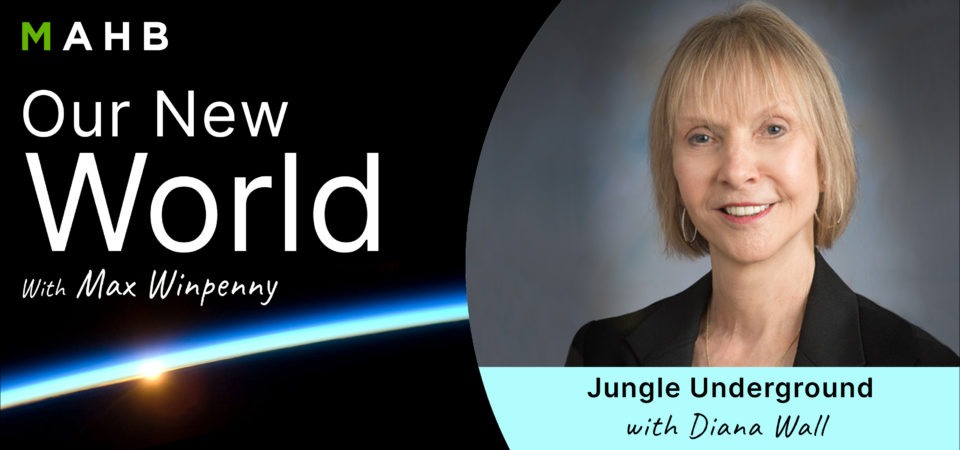Item Link: Access the Resource
Author(s): Max Winpenny
Episode 5 is a discussion with Dr. Diana Wall. She is a distinguished professor who studies climate change, and the jungle beneath our feet; soil. Like a lot of things in this world, It is easy to forget that our lives depend on it, but the ground we walk on affects our food, water and wellbeing in a way that is practically immeasurable. Diana’s research focused on looking at nematodes, a type of remarkable, microscopic worm which can survive in the harshest conditions. They tell us a lot about how life in soil contributes to healthy soils, ecosystem services and sustainability.
Along with considering our relationship with soil, she gives an insight into what it takes to become an academic. Like business, academia is important to understand at a basic level, considering it drives and informs global policy. Our future relies heavily on new discoveries and continued research. Diana is at the front line of research, telling us about what it takes to get there.
Diana H. Wall is University Distinguished Professor and Director, School of Global Environmental Sustainability at Colorado State University. As an ecologist she is recognized for her work on soil biodiversity and climate change. She is internationally renowned for her studies of climate change impacts on soil nematode dynamics, functions, and survival in the Antarctic dry valleys. Her pioneering global scale studies of soil biodiversity are hallmarks of her career. She was president of the Society of Nematologists and the Ecological Society of America and currently is the science chair of the Global Soil Biodiversity Initiative. She has published over 200 scientific articles, co-edited 5 books and numerous chapters. She received the Tyler Prize for Environmental Achievement, the Ulysses Medal from University College Dublin, the 2019 President’s Medal from the British Ecological Society and is an elected member of the National Academy of Sciences. She earned her PhD at the University of Kentucky.
The views and opinions expressed through the MAHB Website are those of the contributing authors and do not necessarily reflect an official position of the MAHB. The MAHB aims to share a range of perspectives and welcomes the discussions that they prompt.
